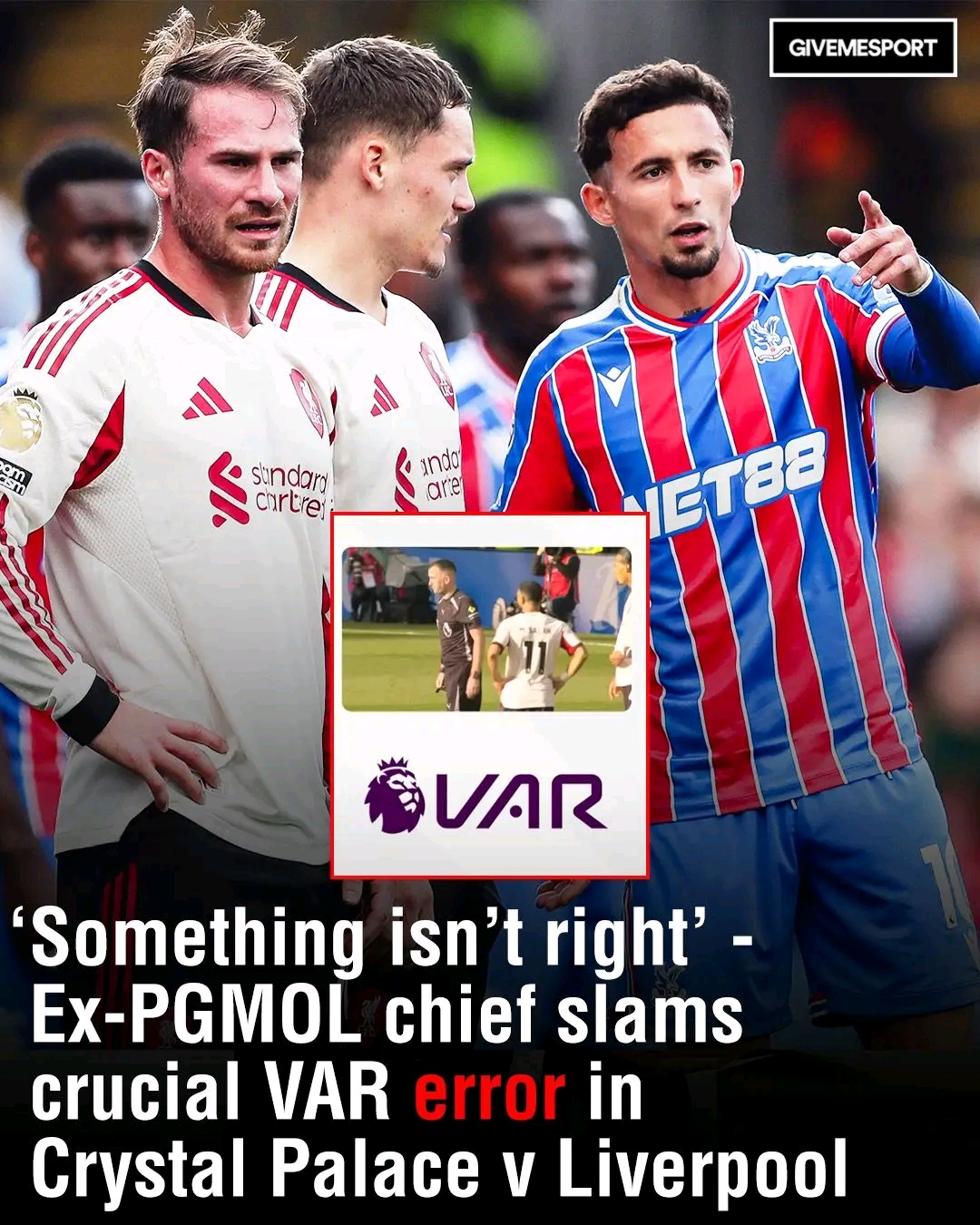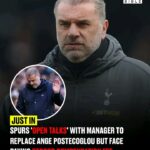Former Premier League referee Keith Hackett is CONVINCED the officials got it wrong

It was supposed to be another night where Liverpool showed the world why they were champions of England, but instead it turned into one of the most controversial evenings of the Premier League season. Liverpool travelled to Selhurst Park to face a Crystal Palace side that had become the surprise story of the season. Oliver Glasner had built a team that feared nobody, a team that had gone on a seventeen-game unbeaten run, a team that was starting to believe they could break the dominance of the so-called Big Six. They had already beaten Liverpool in the Community Shield back in August, and now they had another chance to write history.
Liverpool came into the match with a perfect Premier League record, but many fans and pundits had already begun to notice that Arne Slot’s team did not look as sharp as the Liverpool sides of the past. Yes, they were still winning, but there were moments where they looked vulnerable, moments where their opponents created too many chances, moments where the balance of the team looked wrong. This night against Palace exposed all of it, and it was made worse by a VAR decision that left everybody talking.
The game itself was tense and fierce. Selhurst Park under the lights has always been a tough place to go. The fans were loud, the energy was electric, and Palace had no intention of rolling over. They pressed hard, they defended with courage, and they attacked Liverpool with speed. For long spells Liverpool looked uncomfortable, their midfield overrun and their defence struggling against the energy of Palace.
And yet, like so many times before, it looked like Liverpool had found a way back. Federico Chiesa, the Italian winger who joined Liverpool to give them a new dimension in attack, produced what seemed to be a crucial equaliser. The ball was swung into the box, chaos followed, and suddenly the ball was in the back of the net. The Liverpool players celebrated wildly, the away fans roared, and Arne Slot thought his team had just rescued a vital point.
But then came the controversy. The moment that has dominated headlines, the incident that retired referee and former PGMOL chief Keith Hackett could not ignore. On replay, it looked as if Mohamed Salah had used his arm in the build-up. The Egyptian King, Liverpool’s greatest ever Premier League goalscorer, had leapt into the air trying to meet the ball. His arm was raised, his body shape unnatural, and the ball seemed to brush off him before falling into the path of Chiesa.
Hackett did not hold back in his assessment. “It is difficult to understand,” he said. “When you look at the replay, Salah deliberately makes his body bigger. His arm is stretched out, and the ball clearly touches him. The referee didn’t see it, fair enough, but VAR? VAR has all the angles, VAR has the slow motion, VAR has the responsibility to make the right decision. This is handball. Clear and obvious. And yet they allowed the goal. Something isn’t right.”
Those words hit hard. Hackett is not just any voice. He is a former chief of referees in England, a man who has spent decades in the game, a man who knows what he is talking about. For him to come out and say the system failed, for him to question whether there is a “relationship problem or a technical problem” inside VAR, it sends shockwaves.
For Palace fans, it was almost a robbery. Imagine dominating Liverpool, imagine believing you had beaten them, only for a handball goal to stand. It would have been heartbreaking. Luckily for them, Eddie Nketiah saved the day. The substitute striker, who has often been criticised and doubted in his career, found the ball in the ninety-seventh minute and slotted it past Alisson Becker. The stadium exploded. Palace had beaten Liverpool. Not only beaten them, but ended their unbeaten start to the season. Not only beaten them, but proved that their seventeen-game unbeaten run was no fluke.
Liverpool walked off the pitch defeated. Arne Slot stood on the touchline, arms crossed, face frozen. He knew questions would come. He knew the headlines would not only be about the defeat, but about how poor his side had looked. He knew critics would say Liverpool’s midfield had been too soft, that their defence had been too exposed, that their attack had not been clinical enough. He knew the perfect start to the season was gone, and gone in the most painful way.
But what made it worse was the VAR scandal. Fans across social media exploded with anger. Some defended Salah, saying the handball was accidental, saying football is a game of fine margins, saying VAR should not interfere with moments like that. Others were furious, calling it corruption, saying the big clubs like Liverpool always get decisions in their favour, saying smaller clubs like Palace always have to fight against not just eleven players, but against referees and VAR too.
One Palace fan wrote online: “Big clubs get decisions every single time. We have to beat thirteen men, not eleven. And yet look at us—we’ve only lost four of our last eighteen against the Big Six. We are not scared anymore. We are genuine contenders.”
Another fan wrote: “VAR is a disgrace. Sack them all. Everyone could see it was handball, but somehow they didn’t give it. What’s the point of technology if it can’t fix the basics?”
And then there were Liverpool fans, some still clinging to the belief that decisions even themselves out. “Palace’s winner was offside,” one Reds fan said. “They got that wrong too. Maybe it balances.” But deep down, Liverpool fans knew something was broken. They remembered the Luis Diaz goal wrongly ruled out against Tottenham a few years ago, a decision so shocking that even VAR admitted the mistake afterwards. They remembered other moments where VAR had failed them. And now it had happened again.
Hackett’s words kept echoing: “Something isn’t right.” Was it incompetence? Was it corruption? Was it just human error? Nobody knew. But what everyone agreed on was that VAR had failed once more, and the Premier League’s biggest controversy of the season had exploded.
For Arne Slot, the road ahead is now complicated. His team no longer have a perfect record. His midfield looks shaky. His defence looks uncertain. His players look frustrated. And with Manchester City, Arsenal, and Chelsea all breathing down their necks, the pressure is building.
Mohamed Salah, too, finds himself at the centre of the storm. For years he has been Liverpool’s hero, the King of Anfield, the man who delivered Champions League and Premier League glory. But now he is being accused of cheating, accused of using his hand to create a goal, accused of being at the heart of the scandal. He will feel the criticism, he will feel the doubt, but he will also know that he has nothing to apologise for if it was truly accidental.
As for Palace, this victory may just be the night they truly believe they can challenge for the Premier League title. Eighteen games unbeaten, a win against Liverpool, a team full of confidence—they are no longer outsiders. They are no longer underdogs. They are ready to fight.
And yet, as the dust settles, the conversation is not about Palace’s brilliance or Nketiah’s late heroics. It is about VAR. Always about VAR. The technology that was supposed to save football has once again left it in chaos.
Hackett’s words will not be forgotten quickly. His attack on the system is too strong, too damning, too loud to be ignored. Fans will demand answers. Clubs will demand answers. And the Premier League will once again have to defend the very system they sold to the world as the solution.
For Liverpool, for Palace, for the referees, and for the fans, this was not just another game. This was a night that showed football at its best and at its worst. Drama, controversy, joy, heartbreak—all rolled into ninety-seven minutes of madness.
And as the season moves on, one question will remain: will VAR ever get it right, or will we keep reliving nights like this, where the technology designed to bring fairness instead leaves only anger, confusion, and despair















